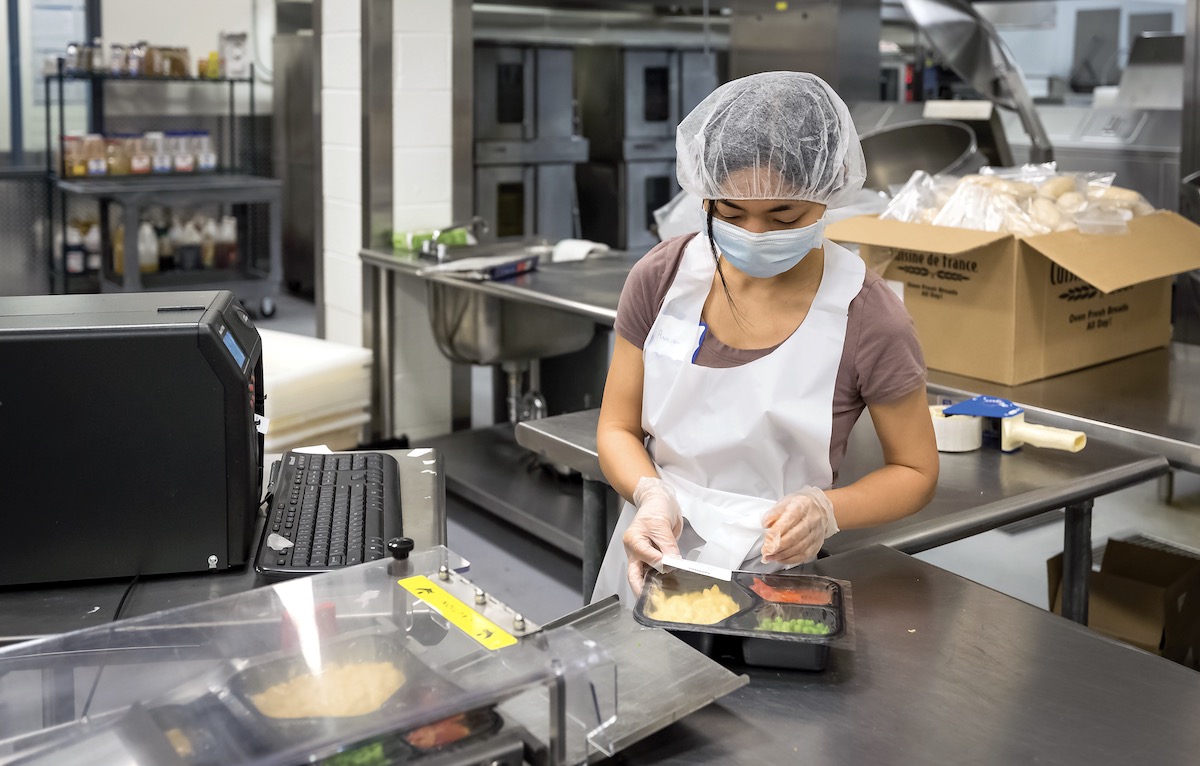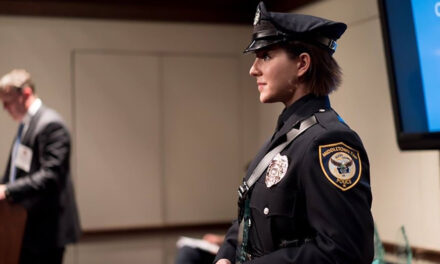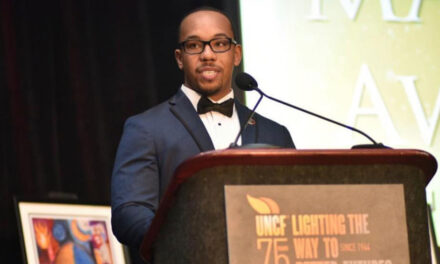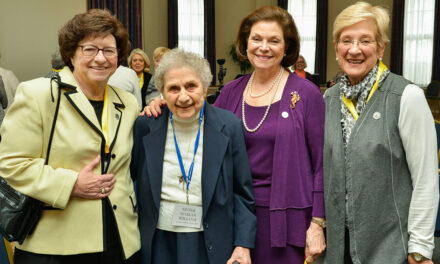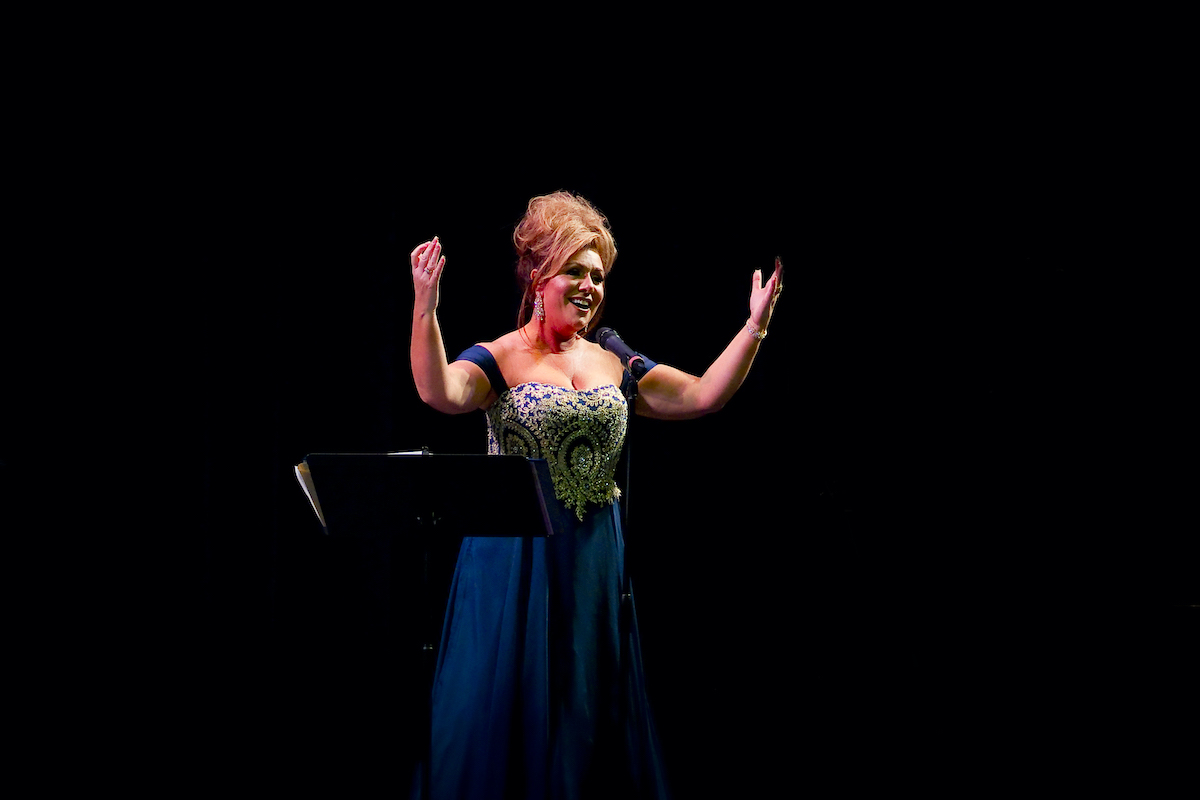Last spring, Sue Daugherty ’97 was panicking. The COVID-19 pandemic was forcing people to stay home and cancel activities. But as CEO of MANNA, the Metropolitan Area Neighborhood Nutrition Alliance in Philadelphia, she and her organization still had to provide free medically-tailored meals and nutrition education for people with serious illnesses. “There was certainly no way that we had the option to close our doors,” she said.
But how do you safely cook and distribute 21 meals a week to 1,500 households of high-risk patients? On top of this, how do you keep up with a 40% increase in patients and a 70% drop in volunteers?
Daugherty and her staff sometimes dropped their administrative tasks to help cook, portion and freeze meals, as many as 150,000 per month. MANNA put out frequent calls for volunteers. At least 15 to 20 volunteers came every day. “This is what MANNA does,” Daugherty reflected. “In a time of uncertainty, we rise to the challenge.”
MANNA is no stranger to public health crises. The nonprofit was founded in 1990 to provide meals for HIV/AIDS patients. Under Daugherty’s leadership, MANNA later expanded to serve people with other chronic health conditions—diabetes, heart and kidney disease, cancer and many more. These diseases may require patients to follow specific, complex diets. MANNA’s clients often face additional health hurdles—some don’t live near adequate grocery stores with fresh produce, and some are too sick and weak to prepare food.
“In a time of uncertainty, we rise to the challenge.”
MANNA delivers the meals free of charge to people in the greater Philadelphia area who are at acute nutritional risk. Health care providers refer patients for services, and MANNA determines eligibility based only on medical criteria, although most clients are low- to moderate-income. Clients receive meals for a varied length of time depending on their medical needs, usually about 12 weeks.
The pandemic adds an extra burden for MANNA’s clients. MANNA highlighted comments from clients on their Instagram account, one of whom said grocery shopping is risky and could be lethal. Another client shared that the pandemic caused her anxiety and grief, which reduced her appetite. So she worked with a MANNA dietitian on a plan to stay well-nourished. The meals she receives provide not just the energy she needs physically, but an emotional boost as well.
Finding Her Niche in Nutrition
Growing up, Daugherty struggled with being overweight. She also struggled in school and wasn’t sure what she wanted to do for a career. After hearing about the dietetic technician program at her community college, she felt inspired to give it a shot.
“Everything clicked for me—the bad things I had been doing to my body most of my life, trying to get my weight under control, it didn’t make sense,” Daugherty remembered. Nutrition did make sense. “I learned that actually, I wasn’t such a horrible student—I just needed to find something I was passionate about.”
Daugherty transferred into Immaculata’s Bachelor of Science in Nutrition and Dietetics Program. “I am not someone that would have done well on a huge campus with classrooms of hundreds of students,” she acknowledged. “It felt like a safe space for me.” Mary Beth Gilboy, Ph.D., was one of Daugherty’s nutrition professors. “She was a good teacher, but she was tough.” Daugherty was surprised when Gilboy gave her positive feedback on her work. “That just gave me this confidence.” She completed her dietetic internship with honors.
After becoming a registered dietitian in 1998, Daugherty worked with HIV/AIDS patients and heard about MANNA’s services. She was hired there as a dietitian in 1999, holding various positions in her more than two decades with MANNA, becoming CEO in 2012.
Rebuilding Health Care with Food as Medicine
Daugherty gained national recognition when she co-authored a groundbreaking peer-reviewed study in 2013 that showed how MANNA’s medically-tailored meals and nutrition education improved patient outcomes and reduced health care costs. Compared to a control group, MANNA clients’ average monthly health care costs were $13,000 less, and they were hospitalized at a 50% lower rate.
The study, Daugherty said, was a game-changer for the organization, leading several Philadelphia-area Medicaid and Medicare managed care organizations to pay for MANNA’s services for a few hundred patients. However, this covers just a third of MANNA’s clients. Foundations, corporate sponsors, private donors and fundraising events, such as the popular “Pie in the Sky” Thanksgiving pie sale, fund the majority of MANNA’s work. Last fiscal year, the organization delivered 1.4 million meals to more than 5,000 people and provided 1,200 nutritional counseling sessions.
In 2018, Daugherty led the effort to establish the MANNA Institute, which conducts research demonstrating the therapeutic value of nutrition, with the intent of persuading more insurance companies to pay for special diets.
“We see ourselves as the pharmacy for your prescription diet,” Daugherty commented. MANNA is not a food pantry, she stresses, but rather treatment. Patients often find it challenging to manage detailed dietary instructions—low sodium and no more than four grams of phosphorus, for example. MANNA relieves patients of these burdensome minutiae and helps fuel their recovery.
“I believe MANNA is going to change the world of food as medicine, and someday, everyone who gets prescribed a diet will have access.”
Daugherty points out that medical nutrition therapy can help type II diabetes patients control their blood sugar without insulin, saving insurance companies thousands of dollars. And yet most insurers provide lifelong coverage for insulin, but only short-term coverage for medically-tailored meals. “I think there’s this philosophical change that needs to happen,” Daugherty commented.
Daugherty has presented about MANNA’s work at national health policy and nutrition conferences, and she has also testified in front of the U.S. Congress. “I believe MANNA is going to change the world of food as medicine, and someday, everyone who gets prescribed a diet will have access,” she said.
Most clients wouldn’t necessarily choose the meals MANNA sends them. “But once we explain the science and why we’re giving them what we’re giving them, it’s usually about six weeks after they’ve been on our program that we get the phone call,” Daugherty said. Clients tell her, “I went to my health care provider, and I didn’t get yelled at! It’s the first time my weight has stabilized.”
Because MANNA’s meal services are temporary, Daugherty wants to help clients sustain their health after they finish the program. So MANNA’s dietitians offer cooking classes and supermarket tours, now available virtually during the pandemic. “We want clients to be able to reproduce our menu at home,” Daugherty remarked.
A Resilient Team
“I am so proud of how MANNA has handled COVID-19,” Daugherty reflected. “Our volunteers are literally the backbone of this organization.” Some have volunteered for 30 years, and others started soon after the pandemic began.
The organization’s Instagram posts feature volunteers who say they appreciate the camaraderie of working together and sharing love through the meals.
Daugherty has developed a simple ritual to start each day at MANNA. Every morning, she gets her cup of coffee, walks through the MANNA kitchen in Center City Philadelphia and takes in the scene of dozens of people working together to serve nutritious food. “I really take a moment to just pinch myself—I get to come and be part of this incredible organization, and I get paid to do this. And these volunteers show up every single day.” She adds, “I feel so blessed and fortunate to do something I love.”
MANNA BY THE NUMBERS
- 100% free to MANNA clients
- 3/7 3 meals a day, 7 days a week
- 7,300 volunteers per year
- 1,418,025 medically-tailored meals delivered from July 1, 2019 to June 30, 2020
- 17,000,000 meals delivered in 30 years

